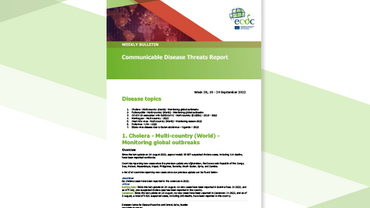Evaluation and assessment of serological immunity methods and EQA scheme of Diphtheria
This report comprises the findings of an external quality assessment for the laboratory diagnosis of diphtheria serology under the European Diphtheria Surveillance Network.
Executive summary
Diphtheria has become a well-controlled disease and is therefore uncommon in many western countries. Subsequently, recognition and diagnosis of a case is often difficult. Diphtheria is often confused with other conditions, such as severe streptococcal sore throat, Vincent’s angina, or glandular fever. Therefore, accurate microbiological diagnosis is crucial and complementary to clinical diagnosis.
Effective control of a vaccine-preventable disease is dependent upon adequate vaccination programmes; therefore measuring the immunisation status of the population is essential. Accurate determination of diphtheria toxin antibodies is of value in assessing responses to vaccination and immunisation schedule efficacy, determining the rates of immunity within broad populations, as well as the immune status of individuals who may be at risk of infection (i.e. travellers, physicians, lab personnel).
It is important that EU Member States have the capacity and ability to undertake the procedures relating to the microbiological/serological diagnosis of diphtheria, as well as to all the related infections caused by all potentially toxigenic strains of corynebacteria. Moreover, diphtheria is still endemic in many parts of the world.
This report comprises of the findings of the external quality assessment (EQA) dispatch for the laboratory diagnosis of diphtheria serology under the auspices of the European Diphtheria Surveillance Network (EDSN). A total of fifteen countries participated in this EQA and were asked to determine the antibodies to diphtheria toxin in human sera. Key findings are listed below; a description of the work involved and the outcomes of these exercises are detailed further in this report.
The key objective of the work, as described in this report is:
- To assess and improve laboratory performance for standardised and appropriate methods to be used for the laboratory serological immunity testing for ensuring accurate and comparative diphtheria surveillance data across Europe.




